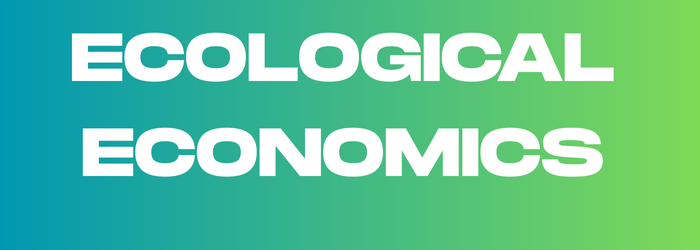Wire: Ecological Economics

September in Ecological Economics — Key Shifts & Signals
What’s New
- World Bank sounds the alarm on pollution’s economic drag
Degraded land, air pollution, and water stress pose a direct threat to economic stability. The World Bank argues that more efficient resource use could halve pollution damage globally. (Reuters) - “Valuing Nature” research challenges old economic norms
A study urges replacing traditional valuation frameworks that treat nature as a “resource” with models that see ecosystems as living systems—deeply woven into human well-being. (aber.ac.uk) - New principles for transforming economics gain traction
The recently published “Ten Principles for Transforming Economics” lays out cross-cutting values — embeddedness, limits, equity, regeneration, relationality, decolonization. (Nature) - Landscape + farm economics integrated via optimization tech
A new model uses hierarchical + Bayesian optimization to align farm incentives with landscape connectivity goals — balancing profitability and ecological integrity. (arXiv) - Europe’s environment report underscores systemic urgency
The EEA’s “State of Europe’s Environment 2025” finds serious degradation, biodiversity loss, and climate pressures undermining both nature and economic security. (European Environment Agency)
⚙️ System Upgrades, Trendlines & Implications
| Domain | System Shift / Update | Why It Matters |
|---|---|---|
| Valuation & Metrics | Moving beyond GDP / resource accounting | Reframes what “growth” or “profit” mean in an ecological context |
| Behavioral & Incentive Architecture | Optimization models tying farm economics to ecosystem health | Bridges microeconomic choices with macro ecological goals |
| Principles & Paradigms | Rising adoption of holistic, decolonial economics | Groundwork for alternative narratives and policy regimes |
| Risk & Exposure | Recognition of pollution / land degradation as economic hazard | Changes how states, firms, and markets must price risk |
| Policy / Governance | Europe’s environmental assessments as leverage | Tools for accountability, regulation, and systemic intervention |
Takeaway & What to Watch
September shows ecological economics accelerating from theory into policy leverage and system diagnostics.
Key takeaways:
- The economic frame is shifting: nature is becoming co-author of value, not background input.
- Models and optimization methods are enabling ecological alignment in real economic decisions (e.g. farms, landscapes).
- More actors are embracing deep principles (regeneration, relationality, justice) rather than incremental tweaks.
- Environmental risks (pollution, land degradation) are being recast as economic instability.
- Policymaking is getting pressure to reflect ecological boundaries and justice imperatives, not just growth targets.
Watch for:
- Whether national budgets, central banks, or finance ministries adopt ecological value metrics
- Scalability of those landscape optimization models in developing regions
- Regulation or taxation mechanisms that internalize natural capital costs
- Institutional reforms aligning public investment with regeneration, not extraction
- Grassroots adoption of alternative economics (municipal doughnut models, cooperative commons)















